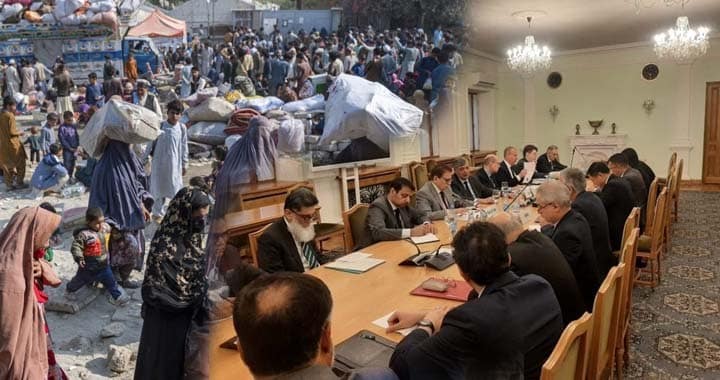Pakistan, with growing concerns over terrorism and regional security, has ramped up its efforts to deport Afghan refugees, even as a key quadrilateral meeting in Moscow called for a peaceful, independent, and terrorism-free Afghanistan. The intensified deportation campaign comes as Pakistan, along with Russia, China, and Iran, discusses regional stability and counterterrorism efforts related to Afghanistan’s ongoing security challenges.
Representatives from the four nations met in Moscow under the Moscow Format, emphasising their shared goal of fostering peace and independence for Afghanistan, free from foreign interference and militant groups. Among the primary topics of discussion was the rising threat posed by groups such as the Tehreek-e-Taliban Pakistan (TTP), the Baloch Liberation Army (BLA), and ISIS, whose presence destabilises the region.
Pakistan’s Special Envoy for Afghanistan, Mohammad Sadiq Khan, highlighted that the quadrilateral meeting also focused on strengthening regional cooperation to tackle terrorism and maintain Afghanistan’s sovereignty. While the meeting underscored the need for a coordinated effort to confront these challenges, the Pakistani government simultaneously expedited the deportation of Afghan refugees within its borders, citing security concerns.
The crackdown on Afghan refugees has led to numerous reports of police raids, arbitrary detentions, and harassment in cities like Islamabad, Karachi, and Peshawar. Refugees, especially those who had previously worked with U.S. and NATO forces, have faced forced evictions despite pending asylum applications. A former interpreter for U.S. troops, now awaiting resettlement, described the unbearable situation: “Every day, police come to our homes. Our visas have expired, and we have nowhere to go.”
Human rights organisations, including Amnesty International, have condemned the deportation efforts, warning that thousands of refugees are at grave risk if forced to return to Afghanistan, where many fled Taliban persecution. Local groups have reported an alarming increase in harassment, physical abuse, and extortion by police officers, with some refugees facing deportation despite having legitimate claims for asylum.
The timing of Pakistan’s refugee crackdown is significant, as it coincides with broader regional efforts to address Afghanistan’s challenges without Western involvement. The Moscow meeting highlighted the necessity of Afghanistan’s sovereignty and territorial integrity, with a unified stance against foreign military presence in the country. However, as Pakistan grapples with growing domestic frustration over its refugee burden, its actions toward Afghan nationals remain controversial and risk exacerbating humanitarian concerns.
The international community and rights groups continue to press Pakistan to halt the deportations, restore visa processing, and ensure the safety of those seeking refuge from persecution. As the quadrilateral talks move forward, the actions taken by regional powers will likely shape Afghanistan’s future trajectory—and the fate of those fleeing its violence.





